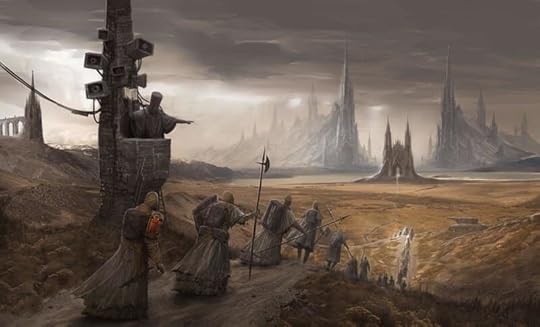What do you think?
Rate this book


405 pages, Paperback
First published January 7, 2010
A man hanging from a gallows with a rope around his neck, his body hatched with scars from the torture before his execution, his broken legs dangling at strange angles beneath him.The Redeemers believe life is sin and salvation only comes through blood and pain. Thus, torture is a common form of discipline and the methods used would cause shivers in most and give a full on chubby to the Marquis de Sade.
“Listen. The Sanctuary of the Redeemers on Shotover Scarp is named after a damned lie for there is no redemption that goes on there and less sanctuary.”
